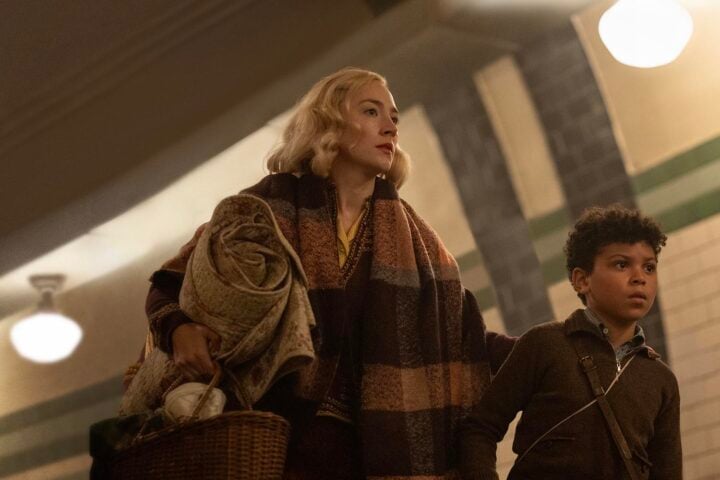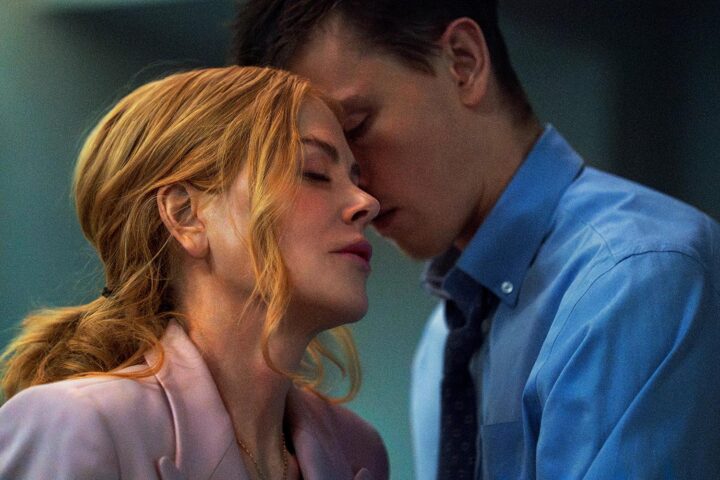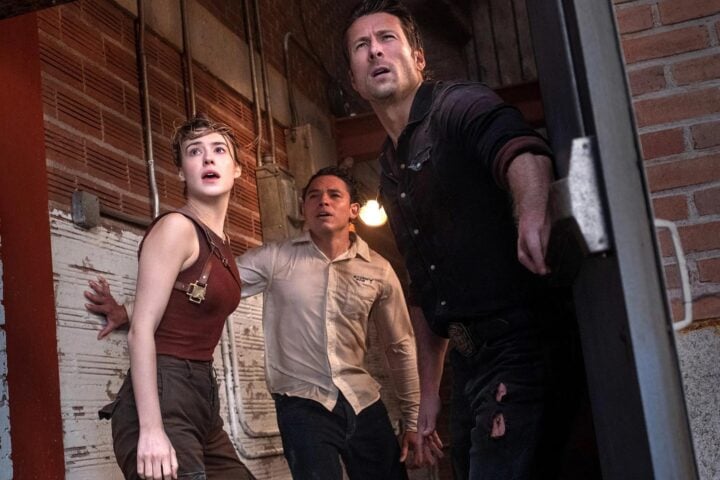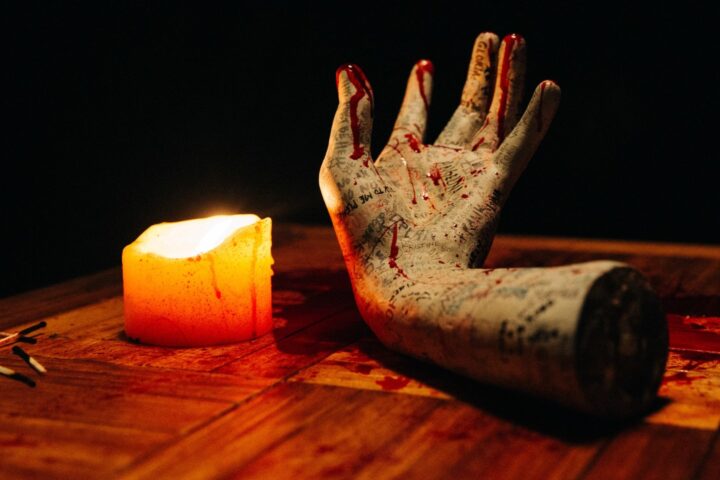If any obsession straddles writer-director Sean Durkin’s three feature films to date, it’s family. The filmmaker’s cinematic gaze fixates with laser-like intensity on a structure that’s long stood as a key organizing unit of American society. While Durkin’s previous examinations tended toward the extremes, such as cultish devotion in Martha Marcy May Marlene and consumerist corrosion in The Nest, focusing on a more traditional nuclear family in The Iron Claw reveals a no less entropic force gnawing away at the structure.
Durkin’s tale of the Von Erich wrestling dynasty splits the difference between the psychological subjectivity of his debut feature and the chilly remove of its follow-up. In The Iron Claw, the filmmaker melds the reverence of a ringside fanatic with the rigor of someone who very clearly took the themes of Martin Scorsese’s Raging Bull to heart. From tribulations and triumphs to tragedies, Durkin wields this true-life saga with the precision of a scalpel to expose the underlying agonies of American fathers, sons, and brothers.
The Iron Claw studiously avoids any grand statements about the state of the nation, be that in its setting during the Carter and Reagan years or the contemporaneous time of its release. Unlike Bennett Miller’s Foxcatcher, which blared its intentions with the line “I wanna talk about America” in the opening scene, Durkin never proclaims. He reveals. Each time that Mátyás Erdély’s camera enters the arena, it finds a unique way to visualize the inexpressible emotion released authentically through the fighters’ athletic performance. The success of the Von Erichs as one of the sport’s first major sensations stemmed largely from their ability to translate a brotherly love that would otherwise go unspoken into a lucid physical vocabulary.
Zac Efron’s Kevin, the eldest living Von Erich child, embodies that fraternal fondness with the most notable fervor. At the willing behest of this clan’s perpetually exhausted mother, Doris (Maura Tierney), he assumes a quasi-patriarchal status among the siblings. While Kevin’s desires are deep, his passions are simple. He just wants to be with his brothers.
Despite the brawny Kevin taking to the booming business of competitive wrestling most naturally, all the Von Erich boys eventually take up the family profession. Brainy David (Harris Dickinson) and brash Kerry (Jeremy Allen White) each get their chance to outmaneuver the hierarchy of birth order for a shot at the championship belt, yet each lacks Kevin’s discipline—or delusion—to go the distance. Even the family’s black sheep, the timid Mike (Stanley Simons), cannot resist the allure of participating when given an unexpected opportunity to get in the ring.
Wrestling solidifies the Von Erich boys’ bond of brotherhood with a firmer grip than the titular maneuver popularized by their father, Fritz (Holt McCallany), a generation prior when he was a wrestler himself. The Iron Claw takes on a euphoric ebullience whenever Kevin climbs in the ring with David and Kerry to commune in ritualized masculine pain and sacrifice. This utopian reverie in their mutual unburdening becomes necessary to underscore the fall from grace as Kevin’s quest for glory grows increasingly solitary across the film.
The first things that stand out in Efron’s performance are the veins bulging from his towering physique. Yet these markers of his performance belie the true foundation of the character he builds, a deeply internal anguish that can only manifest through his bodily mortification. This martyr complex marks his rough-and-tumble reinterpretation of the religious lore deeply interwoven with the Texan psyche. This Christian suffering is something that Kevin, like the rest of the Von Erichs dragged to church by Doris, absorbs but doesn’t fully understand.
But unlike the troubled young men in so many Scorsese films, for whom the absent father marks both spiritual and social ailment, Kevin deals with the opposite problem. Fritz maintains a domineering presence in the lives of his sons both emotionally and financially. His silent but nonetheless swaggering machismo makes him the ultimate Texan sports dad, obsessed with fulfilling his own unachieved aspirations by extension through the achievements of his sons. His actions don’t advance the Von Erich name forward as he thinks they do, instead trapping them in an intergenerational cycle of loss that the family dubs their “curse.”
The Iron Claw marches inexorably in the direction of the pain and loss that the Von Erichs think they can overcome in the wrestling ring. Yet Durkin’s eye for the detail and texture lining the path toward doom provides a necessary counterweight to the inevitability of this Southern-fried tragedy. The film features any number of Chekov’s guns, including one so painfully literal that the future bullet discharge might as well be audible when it’s first brandished. But that obviousness is the point. Knowing this force is unstoppable only amplifies the stakes for Kevin, whose quest for physical invincibility grows in futility against his undefeated opponent: fate.
Since 2001, we've brought you uncompromising, candid takes on the world of film, music, television, video games, theater, and more. Independently owned and operated publications like Slant have been hit hard in recent years, but we’re committed to keeping our content free and accessible—meaning no paywalls or fees.
If you like what we do, please consider subscribing to our Patreon or making a donation.






